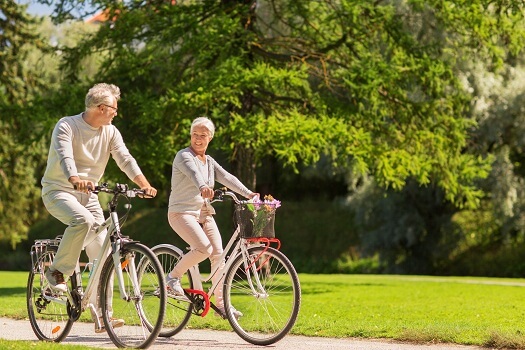Exercise is essential for all seniors, including those living with the neurodegenerative disorder known as Parkinson’s. Physical activities can enhance the nerve cell functions of the brain and help seniors manage the balance, gait, speech, and communication symptoms associated with this disease. Family caregivers should add the coordination exercises mentioned below to their senior loved one’s routine to boost quality of life and slow the progression of Parkinson’s.
1. Tai Chi
Tai chi is a form of exercise that blends a variety of elements and movements, including body awareness and mental attention training. The techniques associated with tai chi can help seniors reduce tremors, freezing episodes, and restless legs syndrome, which disrupts their sleep. Ask your loved one’s primary care physician or physical therapist about local tai chi courses. These classes provide social opportunities to older adults in addition to coordination benefits. The social engagement could reduce the risk of depression in older adults with this neurological disorder.
Even seniors in the advanced stages of Parkinson’s can still get the benefits of exercise, especially with the help of a trained professional caregiver. Anchorage senior care professionals can be a wonderful boon to seniors. Whether they require around-the-clock supervision or just need assistance with exercise and household tasks a few days a week, seniors can enjoy a higher quality of life with the help of trusted in-home caregivers.
2. Aqua Jogging
Working out in the water is often less intimidating for seniors with Parkinson’s, making them more likely to exercise. Aqua jogging puts less stress on the body, but it still provides resistance training without the need to wear bands or weights. Since Parkinson’s can weaken muscles, it’s crucial that seniors find a way to maintain proper balance and posture while working out, and aqua jogging is an exercise that helps them stay in control while building muscle strength, endurance, and tone. Merely being in the water may relax the mind and reduce stress and anxiety levels.
3. Cycling
If your loved one liked to go cycling through the neighborhood before being diagnosed with Parkinson’s, he or she should continue doing this exercise after the diagnosis. Getting out of the house and enjoying favorite hobbies is good for mental and physical health. Riding bikes with family and friends could prevent your loved one’s arms from being stuck to his or her sides and help him or her stop shuffling when walking. Since this disease steals a lot of the control seniors feel, exercises like cycling can restore power and hope, encouraging older adults to stay active. If your loved one doesn’t currently ride a bike, consider adding it to his or her coordination exercises.
If you usually help your loved one exercise but need a break now and then, consider having a professional caregiver take over for you. Anchorage respite care professionals can assist seniors with a wide array of daily tasks, offering family caregivers the chance to focus on other personal responsibilities or take a break to prevent burnout. Whether it’s for a few hours a day or a few days a week, respite care is the perfect solution for family caregivers who are feeling overwhelmed.
4. Seated Leg Raises
As Parkinson’s disease progresses, it can be challenging to stand for long periods, but exercising is still vital to maintaining good health. Simplify your loved one’s physical activities while still providing the coordination benefits he or she needs by encouraging seated leg raises. Your loved one can sit in a chair and lift his or her legs as high as possible without putting too much pressure on his or her body. Raising and lowering the legs, even while seated, can help seniors maintain knee control while standing, which reduces the risk of leg tremors, poor balance, and falls.
Seniors with Parkinson’s who need assistance to exercise safely can benefit from the help of a trained professional caregiver. Home care experts are available to provide high-quality care to seniors on an as-needed basis. From assistance with mobility and exercise to providing transportation to the doctor’s office and social events, there are a variety of ways professional caregivers can help your aging loved one continue to live independently. If your loved one needs professional care, Home Care Assistance is here to help. Call one of our dedicated Care Managers today at (907) 770-0907 to learn about the high quality of our in-home care services.
